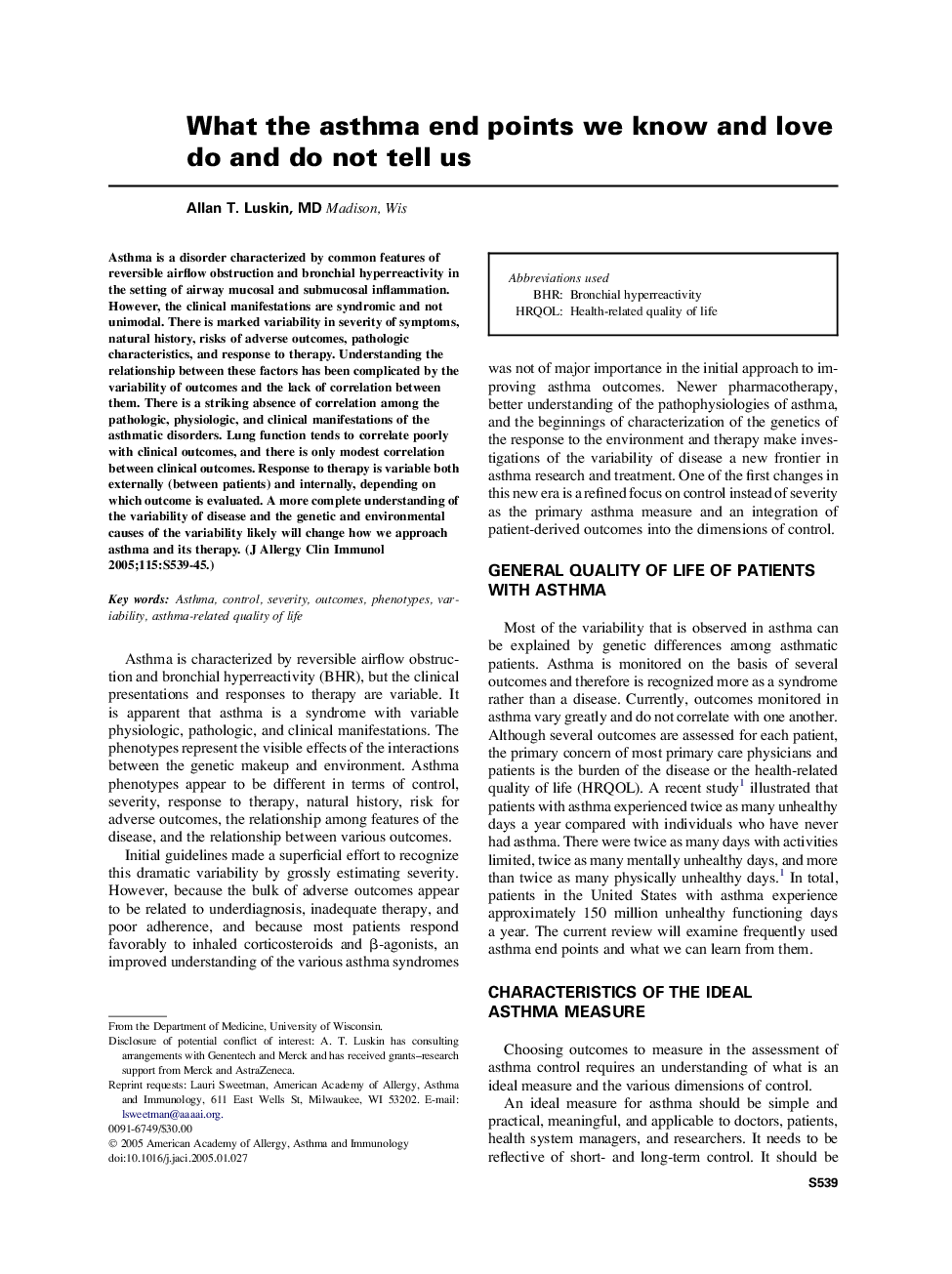| Article ID | Journal | Published Year | Pages | File Type |
|---|---|---|---|---|
| 9225547 | Journal of Allergy and Clinical Immunology | 2005 | 7 Pages |
Abstract
Asthma is a disorder characterized by common features of reversible airflow obstruction and bronchial hyperreactivity in the setting of airway mucosal and submucosal inflammation. However, the clinical manifestations are syndromic and not unimodal. There is marked variability in severity of symptoms, natural history, risks of adverse outcomes, pathologic characteristics, and response to therapy. Understanding the relationship between these factors has been complicated by the variability of outcomes and the lack of correlation between them. There is a striking absence of correlation among the pathologic, physiologic, and clinical manifestations of the asthmatic disorders. Lung function tends to correlate poorly with clinical outcomes, and there is only modest correlation between clinical outcomes. Response to therapy is variable both externally (between patients) and internally, depending on which outcome is evaluated. A more complete understanding of the variability of disease and the genetic and environmental causes of the variability likely will change how we approach asthma and its therapy.
Keywords
Related Topics
Life Sciences
Immunology and Microbiology
Immunology
Authors
Allan T. MD,
